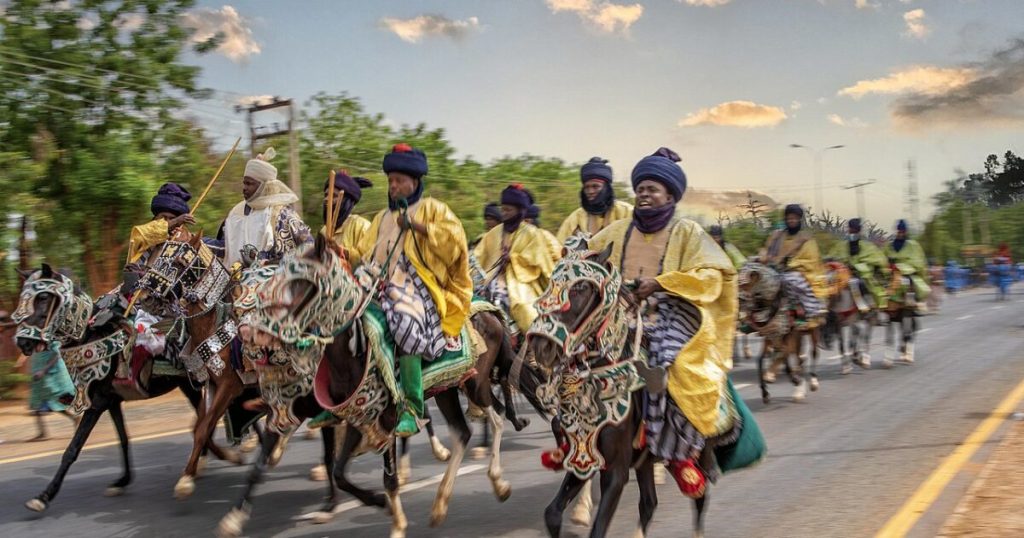The Kano State Government has formally requested compensation from the Federal Government of Nigeria for the economic losses incurred due to the cancellation of the Durbar celebrations for two consecutive years. This appeal, voiced by Alhaji Tajo Uthman, the Commissioner for Local Government and Chieftaincy Affairs, underscores the significant financial impact the cancellations have had on the state’s economy, particularly given the Durbar’s status as a major cultural event attracting both local and international tourism. The commissioner emphasized the event’s recognition by UNESCO as a heritage event, further highlighting its cultural and economic importance. The timing of the appeal, during the Sallah homage paid by the Emir of Kano to the Governor, adds weight to the request, indicating its significance within the state’s cultural and political landscape.
The crux of the commissioner’s argument rests on the substantial revenue generated by the Durbar festivities. Traditionally, the event draws a large influx of tourists, both domestic and international, contributing significantly to the local economy. The cancellation effectively halted this influx, resulting in what the commissioner described as “huge financial losses.” This disruption extends beyond immediate tourism revenue, impacting related sectors such as hospitality, transportation, and local craft businesses that typically benefit from the increased activity during the Durbar period. The commissioner contends that the cumulative effect of these losses is substantial enough to negatively affect the state’s annual budget, underscoring the severity of the economic ramifications.
Furthermore, the commissioner’s assertion that the Federal Government bears responsibility for the economic fallout of the cancellations adds a layer of complexity to the issue. While the reasons for the cancellations weren’t explicitly stated in the original text, the commissioner’s call for “reparation” suggests a perception that the Federal Government played a role in the decision-making process leading to the cancellations, possibly through mandates or restrictions related to national security or public health concerns. This demand for compensation frames the issue not merely as an unfortunate circumstance, but as a consequence of decisions made at the federal level that directly impacted Kano State’s economic well-being.
The implicit argument within the commissioner’s statement is that the Federal Government, in its decision-making process, failed to adequately consider or mitigate the economic consequences for Kano State. The request for compensation, therefore, serves as a call for accountability, urging the Federal Government to acknowledge the financial burden imposed on the state due to the cancellations. The commissioner’s use of the term “reparation” further strengthens this argument, suggesting a need for redress for perceived economic harm.
The commissioner’s simultaneous call for the immediate resumption of the Durbar celebrations underscores the dual nature of the state’s concerns. Beyond the financial implications, the cancellations also represent a disruption of a significant cultural tradition. The Durbar, with its rich history and vibrant displays of horsemanship and traditional attire, holds deep cultural significance for the people of Kano. Its cancellation not only impacts the economy but also disrupts a cherished cultural practice, further emphasizing the need for its reinstatement. The commissioner’s labeling of the cancellations as “regrettable” reflects this sentiment, highlighting the loss felt by the community due to the absence of this important cultural event.
In essence, the Kano State Government’s appeal encompasses both economic and cultural considerations. While the primary focus is on the financial losses incurred due to the cancellations, the underlying cultural significance of the Durbar and the disruption to tradition add another dimension to the issue. The request for compensation represents not only a plea for financial redress but also a call for the recognition and preservation of the state’s cultural heritage. The commissioner’s statements effectively articulate the intertwined nature of these concerns, highlighting the multifaceted impact of the Durbar cancellations on Kano State.


